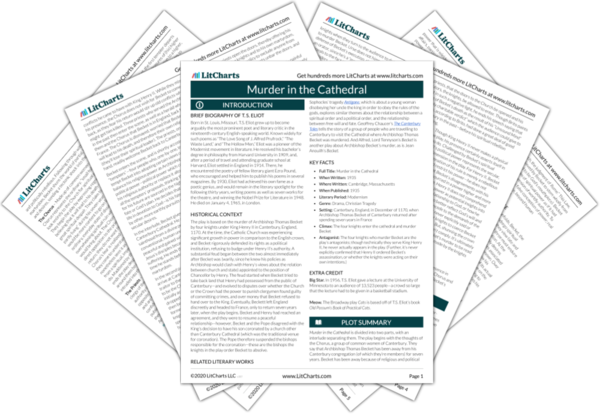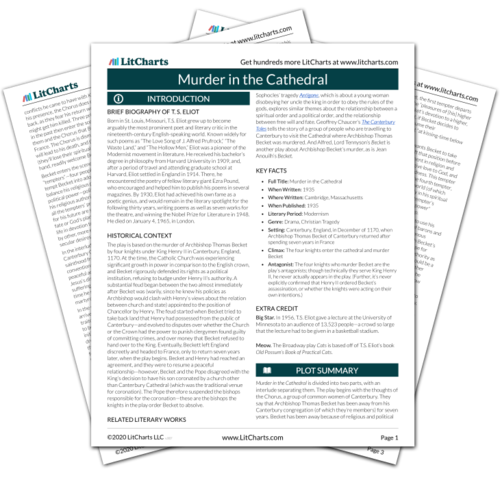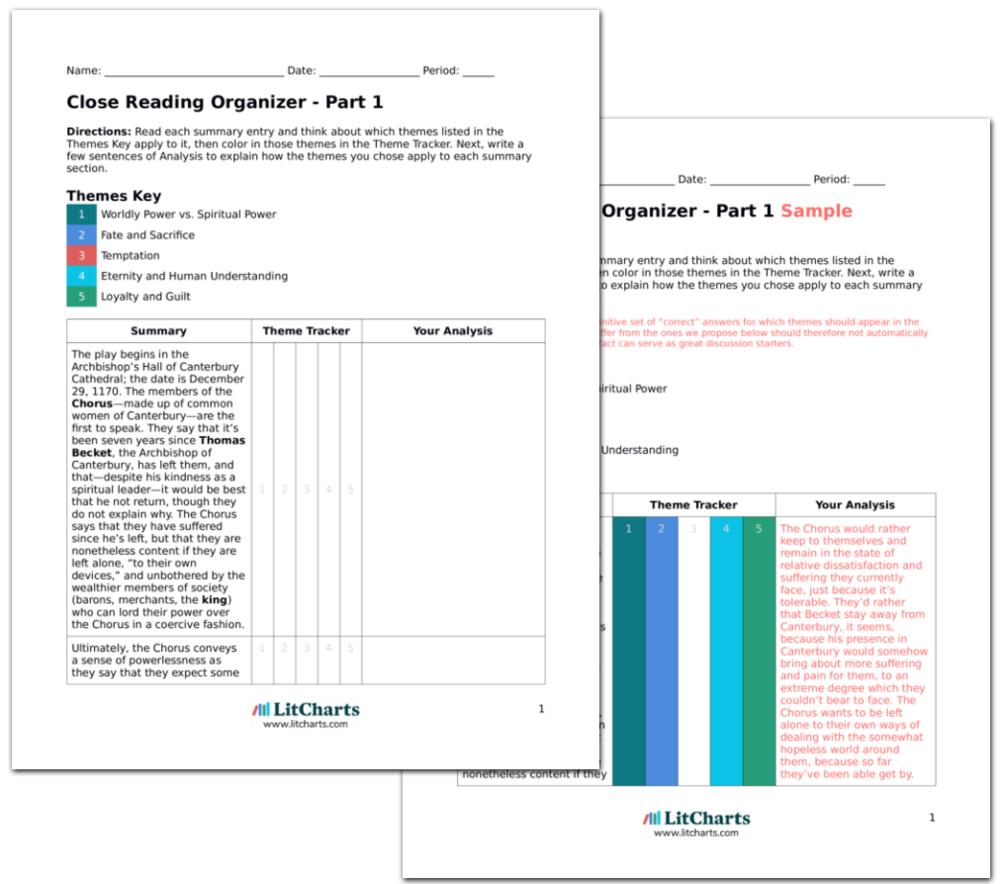![]()
LitCharts assigns a color and icon to each theme in Murder in the Cathedral, which you can use to track the themes throughout the work.
As a play based on the actual historical conflict between the Archbishop Thomas Becket of Canterbury and the English King Henry II , Murder in the Cathedral explores the relationship between two forms of power: worldly and spiritual. Worldly power refers to any power that is wielded over the everyday world of human affairs, particularly political power. The play refers to this power as “temporal,” highlighting its fleeting nature and the fact that it is…
![]()
As Murder in the Cathedral unfolds, Becket , the priests , and the Chorus all undergo spiritual evolution with regard to how they view fate and their relation to it. By the end of the play, all three must endure some kind of sacrifice as a result of this evolution. At the beginning of the play, Becket somewhat selfishly desires martyrdom in order to reap the spiritual benefits associated with it: sainthood, spiritual glory, and…
![]()
The concept of temptation as something that causes people to deviate from the divine unfolding of fate—at least as Becket sees it—permeates Murder in the Cathedral . The four tempters and priests both try to “tempt” Becket away from his fate, though in two very distinct ways.
The priests also try to “tempt” Becket—though less obviously than the actual “tempters”—by trying to keep Becket alive. They refuse to unbar the doors of the church at…
![]()
"My students can't get enough of your charts and their results have gone through the roof." -Graham S.

At the core of Murder in the Cathedral is a contrast between a higher power beyond human comprehension and the earthly realm of everyday human affairs. This realm of human thought is fraught with opposites—with oppositional thinking that pits good against evil, holy against unholy, high against low—while the divine realm of spiritual thinking is concerned with a oneness and wholeness that transcends the partial nature of human categories. Eternity—the everlasting, indivisible dimension of spiritual…
![]()
Both political and religious loyalty (loyalty to God) are examined in the play, as well as the way those loyalties do or don’t inspire guilt. When Becket found himself caught between serving his king as chancellor or serving the Church, he chose the Church. He also refused to acknowledge the prince’s coronation. In the play, Becket defends his actions towards the king by claiming that it was not he but the Pope (and therefore God…
![]()

“Would not have made it through AP Literature without the printable PDFs. They're like having in-class notes for every discussion!”
Get the Teacher Edition
“This is absolutely THE best teacher resource I have ever purchased. My students love how organized the handouts are and enjoy tracking the themes as a class.”
Copyright © 2024 All Rights Reserved Save time. Stress less.AI Tools for on-demand study help and teaching prep.
 Quote explanations, with page numbers, for over 44,233 quotes.
Quote explanations, with page numbers, for over 44,233 quotes. PDF downloads of all 1,999 LitCharts guides.
PDF downloads of all 1,999 LitCharts guides. Expert analysis to take your reading to the next level.
Expert analysis to take your reading to the next level. Advanced search to help you find exactly what you're looking for.
Advanced search to help you find exactly what you're looking for.
 Expert analysis to take your reading to the next level.
Expert analysis to take your reading to the next level. Advanced search to help you find exactly what you're looking for.
Advanced search to help you find exactly what you're looking for.